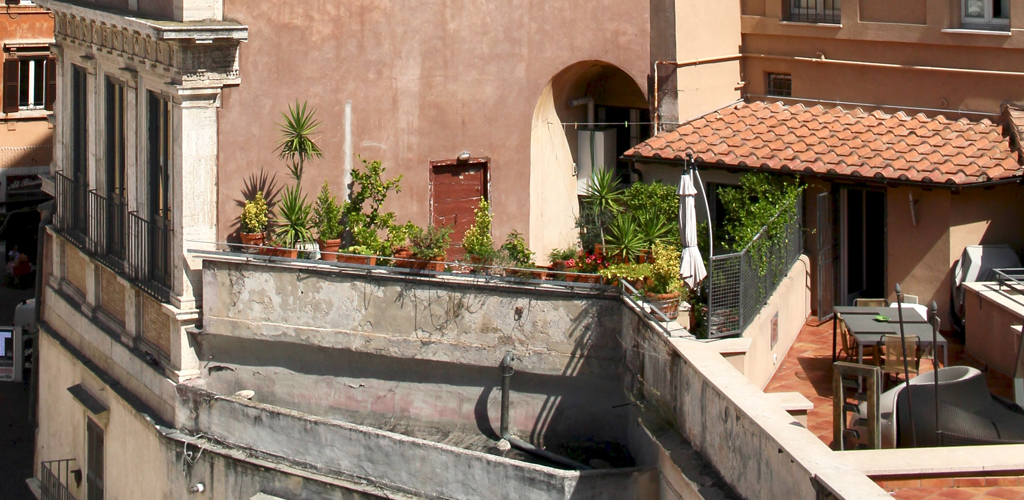When she picked me up from arrivals for the first time, she was wearing a soft jeans-coloured overall amounting to little more than a tank top and shorts. Her bare arms and legs were golden brown, her breasts girl-like, free from constraints and, from what I could perceive, evenly tanned. It was the summer of 1994. She drove without a safety belt, her feet slipping out of wooden sandals, brown-blond hair carelessly tied back. Her gaze from the rear-view mirror was blue-grey, enquiring, cool despite the afternoon heat. I pictured her with the same outfit 20 years earlier, when she would have been around my age. It was a social media influencer’s dream get-up from today’s perspective but outdated and a little surprising then. Something I might have gracefully worn at the age of 8 – before my body started disappointing me.
She slept in satin sheets, wearing silky negligees, loosely covered by a matching nightgown when she got up in the morning. She brought him his coffee to bed, their heads close together, joking, whispering loving words and sharing the kind of relaxed intimacy that, I now know, only a mother and son can share. I found this infuriating, inappropriate, humiliating. He shared his childhood room with his brother, and I slept in the guest room. We were adults in our mid-twenties but still treated as children. Also, I suspected that appearances had to be kept in the few days we stayed at the family house.
A huge apartment, the view out of the kitchen balcony my favourite, overlooking sunlit houses, golden before dusk, the noise of the city and the beauty of the old town just around the corner. It reminded me of my father’s family house, in a seaside place several hundred kilometres up north, facing the same sea, breathing the same breeze, carrying Eastern European charms across a stretch of water you could easily conquer by sailboat overnight. Apartments too big for a divorced mother like her, or a widow like my grandmother, but testimonies to ancient splendours, fancy dinner parties, the family’s respected status.
The second summer, I was psychologically prepared. It was exactly a year since my mother had died. I no longer expected anything – kindness, mercy. I knew I was loved, probably even appreciated, for the simple fact that her son loved me, even if I didn’t fulfil expectations. “Now, there goes a beautiful girl!” she had commented while we sat in the car alone the day of our first encounter, watching a southern Mediterranean beauty stroll past. Tall, elegant, though pushing a pram. I had just avoided that destiny, knowing it would have destroyed me.
Some years later, she spent a night in my family apartment, much further up north and far from the sea. It was a foggy autumn, and she was visiting the city with her new boyfriend. Almost 50, like I am now, almost free to enjoy life. Her son had not answered the phone when she called, the luxury of life before cell phones. We were no longer together then, he and I, but I was still family. Or at least enough to invite herself over, have me cook dinner for them and have loud sex in my bedroom. While I put a pillow over my ears in what used to be my parents’ bedroom, trying to sleep without bedsheets, which for some reason were in my own room and out of reach, I swayed between rage and admiration. The tenacity, the undefeated lust for life, the ability to have her way even in the most unexpected circumstances.
In the summer of 2000, it was my turn to visit with my new boyfriend. We stayed over in the same guest room, where I had once slept alone. Some form of masochism had prevented me from visiting the area without getting in touch. Or was I trying to prove a point? By then, my father had also died. I had graduated with full honours. I was working. I had moved to another country.
And then again years later, at her son’s wedding, she danced to Samba and Bossa Nova in a golden dress, with the same ease as her ninety-seventies persona. I felt relieved I wasn’t the one becoming her daughter-in-law, relieved we, me and him, had each met a partner much better equipped to bear us, to love us for decades.
She’s a (proud?) grandmother of two by now, though I can’t picture her in that role and prefer to remember her as forever untouched by age. Was she ever told about that potential first grandchild? How improbable that would have been, how grateful I was to have been able to choose my fate. She would have agreed 100% with my decision, partly for selfish reasons. Keep her son’s bright future unspoiled. So why do I still long for some token of recognition from her, of ‘chapeau’ to my feminist, fiercely independent twenty-something self?
I haven’t been to my grandmother’s apartment for years. I imagine it half renovated, in limbo, still full of my uncle’s stuff, but ready for new glory. There as well, the kitchen balcony was my favourite place. Sunny, solid, embracing life with all its sounds and smells. In perfect contrast to the dining room terrace facing the city’s main promenade, the ‘city’s living room’. I would rather sit on the stone step near the kitchen, observing my grandmother’s busy routine, me daydreaming or reading. They never met, those two women, though it could have been possible. My grandmother lived until she was 93, much longer than my parents had. Women who had each raised and overindulged two sons, who spared nobody, held on to life relentlessly. Women who forever made me feel inadequate, alien, lost in my imaginary world. A child refusing to grow up. Women who played by the rules but ultimately lived as they pleased – letting the world flow by, outside their kitchen balconies.
…
Biography
Lucy N. grew up between Italy and Germany and later worked and studied around Europe. She’s still lost. Her grown-up work promotes transculturality in journalism, media and communication. Lucy N. also dabbles in music, photography, writing, creative productions and more at https://songsforlucy.info
Image: unsplash.com





